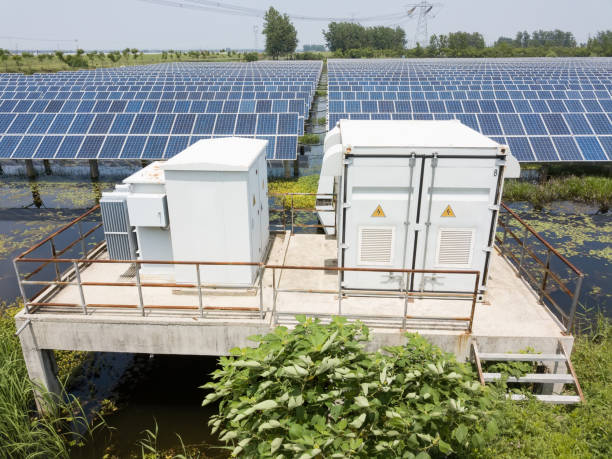
Solar solutions are becoming more popular as people become more eco-conscious. Solar Inverters have become increasingly popular as electricity prices continue to rise. When looking at solar inverters, we should consider the life expectancy of inverters.
According to PV Magazine, the life expectancy of a solar converter is between 20-25. It can vary depending on the product, installation, environment of use, and after-care.
Several factors can cause your inverter to be less effective. For example, regular maintenance can directly impact the lifespan of your battery and the effectiveness of your home solar system. We will discuss in detail the factors that influence the life of solar inverters.
The temperature of the Solar Inverter
Solar inverter performance and lifespan are directly affected by the temperature of the inverter. Solar inverters will perform and last less if they are heated up.
Many components inside solar inverters, such as capacitors, are susceptible to temperature fluctuations. This is another essential component of solar inverters. The capacitor’s life decreases by 50% for every 10-degree increase in ambient temperatures. Keep your solar inverters out of direct sunlight or in places without adequate ventilation. This can lead to them overheating.
Install solar inverters away from high temperatures and direct sunlight, such as air conditioners, outlets, and electric stoves.
Input Voltage and Current of Solar Inverter
The longevity of an inverter is also affected by the incorrect matching of input voltage and current parameters. The components will last less if the voltage or the current is higher. The series component voltage should not be too high or low when the component power has been fixed.
Keep the series element’s voltage close to the inverter’s rated voltage. If the input voltage range of 200-1000V is given, the inverter will function correctly if this voltage range is met.
You can improve the performance and life of your inverter batteries for the home by keeping the input voltage in the recommended range. Solar inverters have a different life expectancy for input voltages within the field.
The External Environment of the Solar Inverter
It is equally important to maintain a clean external environment. Inverters that are installed in a clean, hygienic environment will last longer.
Solar inverters should be installed in closed spaces if the environment is prone to severe dust and pollution. The heat-radiation function is affected when dust, leaves, or sand falls on the radiators or air pipes of the inverters.
Solar power inverters can be installed either indoors or outside. Indoor solar inverters tend to be cheaper than outdoor ones. Outdoor inverters can withstand adverse weather conditions like rain and extreme heat.
Solar power inverters should not be placed in direct sunlight. This can lead to their failure or shortening of life. Solar batteries are necessary to run a solar power inverter. Inverter batteries from the genus are an excellent choice because of their high performance, low-maintenance, corrosion resistance, and quick rechargeability.
Maintenance and Cleaning
Solar inverters can be found in many outdoor locations. It is, therefore, important to regularly inspect them to ensure they are clean and free from dust and debris. Cleaning and checking the solar inverter periodically is essential to avoid damaging or clogging electrical components, heatsinks, and vents.
To prevent overheating, it’s essential also to maintain adequate ventilation. Monitor your inverter every few months. Check that the area around the device is not altered or affected by any circumstances. Ask your solar provider for corrective action if any visible damages are discovered.
Fault codes
Solar inverters can also get fault codes. These fault codes can help you to identify problems in your inverter. Minor problems can lead to more significant issues and premature inverter failure if they are not addressed.
Conclusion
Solar inverters manufactured today are designed to last for the same period. The above factors, however, can impact solar inverter lifespan. To maximize solar inverter lifespan, we must consider all factors that affect it and take the appropriate actions.
You now know how to maximize the lifespan of a solar power inverter. It’s time to look for a quality inverter. Genus Innovations’ solar product line is the best choice in this regard. Our products are known to offer maximum durability, value, and efficiency.
